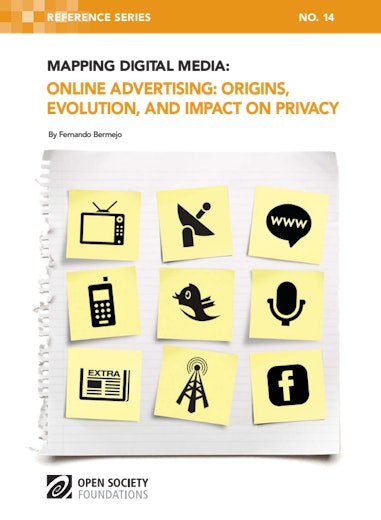The Mapping Digital Media project examines the global opportunities and risks created by the transition from traditional to digital media. Covering 60 countries, the project examines how these changes affect the core democratic service that any media system should provide: news about political, economic, and social affairs.
Over the past decade and a half, advertising has become a fundamental element of the internet economy. It fuels most prominent services and platforms, including search engines, social networks, and news sites. Online advertising differs from offline advertising in many ways. It is a complex and continuously evolving field that uses a variety of formats, targeting techniques, and pricing models.
In all its forms, however, it relies on data about users. As a result, privacy has become a central topic for industry and policy discussions. This paper surveys the evolution and various forms of online advertising, and examines the privacy-related issues that any serious policy in this area needs to address. It foresees that online advertising will be shaped by the struggle between proponents of government regulation on the one hand, and of self-regulation on the other.
Download
-
Mapping Digital Media: Online Advertising-Origins, Evolution, and Impact on Privacy (209.81 Kb pdf file)
Download the complete 21-page report.
